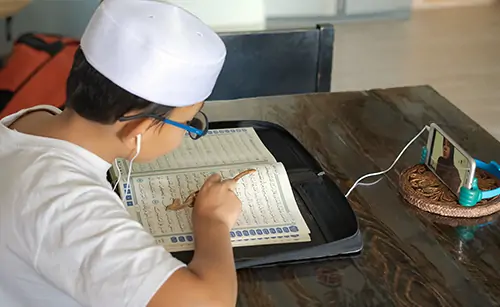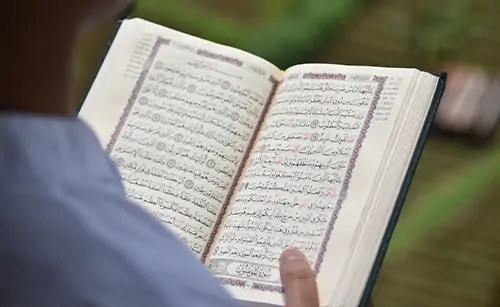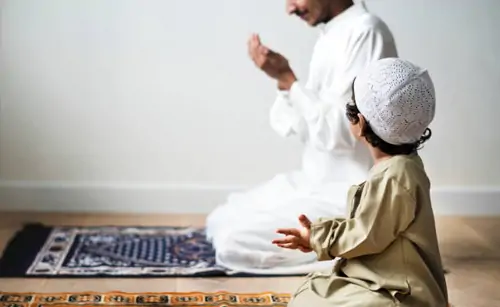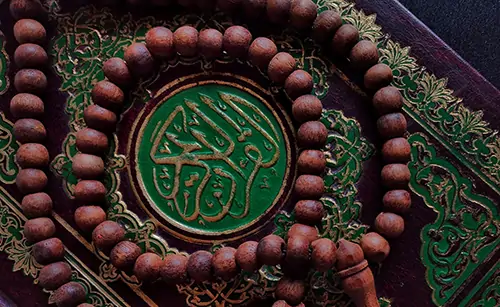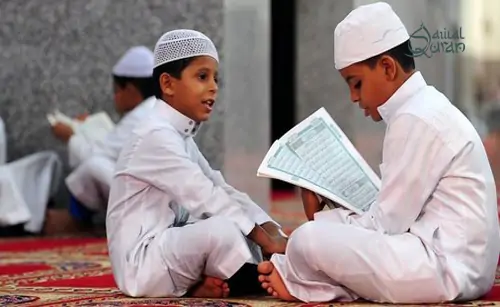Step-by-Step Guide to Ghusl: Islamic Purity Explained

Taking full bath to cleanse oneself of both spiritual and physical dirt is part of the important Islamic cleaning practice known as ghusl. It is required in certain circumstances, like as following a marriage, pregnancy, or menstruation, and it is necessary to conduct acts of worship like salah. Ghusl signifies not just physical cleanliness but also spiritual renewal and submission to Allah's commandments. Maintaining purity through practices like Ghusl and Wudu is essential in Islam, as both are integral to physical and spiritual cleanliness.
The Method of Ghusl
Cleanliness and purity are highly valued in Islam since Allah is "Pure" and values them. Allah has so commanded Muslims to abstain from all contaminants and maintain their own purity.
Allah says:
"And if you are in a state of major impurity, then purify yourselves thoroughly."
(Surah Al-Ma’idah, Ayah 6)
Five Reasons That Make Ghusl Obligatory
- Discharge of semen from its place with desire.
- Wet dreams, i.e., the emission of semen while sleeping.
- The entry of the male organ's tip (whether with or without desire and ejaculation).
- Completion of menstruation.
- Completion of postpartum bleeding (the bleeding that occurs after childbirth).
(Reference: Bahar-e-Shariat)
A Sad Reality
Today, a sizable portion of the population is ignorant of how to do ghusl in compliance with Islamic principles, just as carelessness is shown in many other acts of devotion. As their lives growth, they even have the privilege of doing the Hajj and Umrah. Still, due to ignorance, they fail to achieve proper purification. Let us work to eliminate this ignorance and learn the method of performing ghusl in accordance with Shariah.

The Method Of How To Perform Ghusal (Ghusal Ka Tarika Step By Step Guide)
(According To Hanafi Fiqh)
Begin by intending in your heart, without moving your tongue, that: “I am performing ghusl to attain purification.”
- First, wash both hands up to the wrists three times.
- Wash the private parts thoroughly, even if there is no impurity.
- If there is any impurity on the body, remove it.
- Perform wudu as you would for salah, but delay washing the feet if standing in a place where water collects. If you are on a platform, you may wash your feet immediately.
- Apply water over the entire body, similar to applying oil, especially in colder seasons (soap may also be used).
- Pour water three times over the right shoulder, then three times over the left shoulder.
- Then, pour water over the head and the entire body three times.
- Step away from the bathing place. If you delayed washing your feet during wudu, wash them now.
Additional Guidelines
- Do not face the Qiblah while bathing.
- Rub and wash the entire body thoroughly.
- Bathe in a place where no one can see you.
- Avoid speaking during the ghusl, including reciting any duas.
- After completing the ghusl, drying yourself with a towel is permissible.
- Wear clothes immediately after ghusl.
- If it is not a disliked time, it is recommended to pray two rakats of nafl salah after ghusl.
(References: Fatawa Alamgiri, Bahar-e-Shariat)
The Three Obligatory Acts of Perform Ghusl
Rinsing The Mouth
Properly rinse the mouth, ensuring water reaches every part, including the sides of the mouth, behind the molars, and up to the throat. For non-fasting individuals, gargling is Sunnah. Remove any residue, such as food particles or betel leaves stuck between the teeth. If removal is harmful, it is excused.
Rinsing The Nose
Water must be sniffed up to the soft bone (where the cartilage begins). Ensure no part of the nose remains dry. Removing dried mucus is obligatory, and rinsing the nasal hairs is also necessary.
Washing The Entire Body
Water must permeate every area of our bodies, from the soles of the feet to the hair on the head. Neglected areas can continue to be clean, rendering the ghusl invalid.
(References: Fatawa Alamgiri, Bahar-e-Shariat)
Ghusl In Flowing Water
If you are bathing in flowing water like a river or stream, staying in the water for a short time is enough to count as washing three times. Just follow the proper sequence and perform wudu. There’s no need to move your limbs three times in the water.
If you bathe in still water like a pond or tank, moving your body or changing positions counts as washing three times, fulfilling the Sunnah. Bathing under a shower is similar to using flowing water. However, rinsing the mouth and nose is still obligatory.
(References: Bahar-e-Shariat, Fatawa Alamgiri)
Important Notes Regarding Ghusl
- Bathing naked in front of others is haram.
- If bathing in the rain, wear a pajama or additional thick clothing to ensure the body is not revealed when wet.
- If using a shower in the bathroom, ensure that neither your face nor back faces the Qiblah. This precaution should also be taken when using a toilet.
Conclusion
Purifying oneself through Ghusl is a vital aspect of Islam, symbolizing both physical cleanliness and spiritual devotion. By performing it correctly, we fulfill Allah’s command and prepare ourselves for worship. To learn more about Ghusl and other essential Islamic teachings, join Awwal Quran and deepen your connection to faith and knowledge. May Allah guide us all to purity and righteousness. Ameen!
FAQ's
When is Ghusl obligatory in Islam?
During significant impurities such menstruation, postpartum hemorrhage, wet dreams, or marital relations, ghusl becomes needed.
Can Ghusl be performed using a shower?
A shower is regarded as flowing water, and Ghusl can be carried out with it so long as the water covers each part of the body.
Is it necessary to perform Wudu during Ghusl?
The Sunnah technique of Ghusl does include performing Wudu, but washing one's complete body covers the requirement.
Can soap be used during Ghusl?
Although soap can be used for cleaning, Ghusl doesn't need it to be genuine.
Is it permissible to speak or recite duas during Ghusl?
No, speaking or reciting duas during Ghusl is discouraged to maintain focus on purification.







